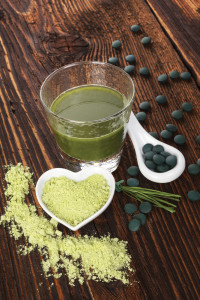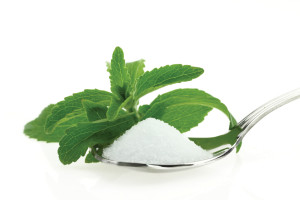The American Heart Association (AHA) is so concerned with the health problems related to the intake of excess sugar that in August 2009, it issued more specific recommendations: no more than half of the discretionary allowance of calories should come from added sugar. AHA said that most American women should consume no more than 100 calories daily of added sugar, and most American men should consume no more than 150 calories daily of added sugar.1
The report1 stressed that “high intakes of dietary sugars in the setting of a worldwide pandemic of obesity and cardiovascular disease have heightened concerns about the adverse effects of excessive consumption of sugars … Excessive consumption of sugars has been linked with several metabolic abnormalities and adverse health conditions, as well as shortfalls of essential nutrients.”
In addition to cardiovascular disease, obesity and vitamin and mineral depleTion, excessive sugar consumption can cause immuno-suppression, arthritis and, of course, tooth decay. It’s no wonder that consumers are actively pursuing healthier alternatives that will allow them to still indulge their sweet tooth.
Stevia
Made from an extract of the Stevia rebaudiana plant, stevia can be found in leaf, liquid and powder form. Low in calories (a zero rating on the glycemic index), it may help lower blood sugar levels, thereby making it safe for diabetics.The stevia leaf has been found to Contain iron, phosphorus, calcium, potassium, magnesium, and zinc, and boasts zero net carbs. It’s also about 30 times sweeter than sugar, so only a tiny amount is needed.
Leaves of Stevia rebaudiana Are a source of several sweet glycosides of steviol. The major glycoside, stevioside, diterpenoid glycoside is used in oriental countries as a food sweetener. Its medical use is also reported as a heart tonic.Besides, it is used against obesity, hypertension, and stomach burn and to lower uric acid levels.
Another stevia benefit is that it has displayed immune-balancing properties.In a study2 conducted in the Pharmacology Division, Indian Institute of Integrative Medicine, stevioside was tested for its immunomodulatory activity on different parameters of the immune system at three different doses
(6. 25, 12.5 and 25 mg/kg p.o.) on normal as well as cyclophosphamide treated mice. Stevioside was found effective in increasing phagocytic activity, haemagglutination antibody titre and delayed type hypersensitivity. In parallel, stevioside substantially increased proliferation in the LPS and Con A stimulated B and T cells, respectively. The study, therefore, revealed that stevioside holds promise as immunomodulating agent, which acts by stimulating both humoral as well as cellular immunity and phagocytic function.
Xylitol
A sugar alcohol derived from birch sugar, xylitol is a good low-calorie alternative to refined sugar. While it is just as sweet as table sugar, it has about 40 percent fewer calories and 75 percent fewer carbohydrates. Xylitol has been demonstrated in repeated clinical studies to be very slowly metabolised.3 In fact, on the glycemic index, sugar is rated at 100 and xylitol at just seven.Xylitol is a natural insulin stabilizer, therefore it causes none of the abrupt rises and falls that occur with sugar.
In addition, an overview of studies about xylitol and dental caries suggests potential clinical dental applications for xylitol.4 Data from recent studies indicate that xylitol can reduce the occurrence of dental caries in young children, schoolchildren, and mothers, and in children via their mothers. Short-term consumption of xylitol is associated with decreased Streptococcus mutans levels In saliva and plaque. Aside from decreasing dental caries, xylitol may also decrease the transmission of S. mutans from mothers to children.Commercial xylitol-containing products may be used to help control rampant decay in primary dentition. Studies of schoolchildren in Belize and Estonia, along with data from the University of Washington, indicate that xylitol gum, candy, ice pops, cookies, puddings, etc., in combination with other dental therapies, are associated with the arrest of carious lesions. A prospective trial in Finland has demonstrated that children of mothers treated with xylitol had lower levels of S. mutans than children of mothers treated with chlorhexidine or fluoride varnish.
Ribose
Similar to xylitol, ribose, a special sugar made by the body to make energy molecules called ATP, does not have the safety issues of regular sugar and is safe for diabetics. According to Jacob Teitelbaum, MD, medical director of the Fibromyalgia and Fatigue Centers, ribose “actually lowers blood sugar, so use cautiously if on insulin to be sure sugar does not go too low.” He added that ribose also “helps improve heart function (studies underway are exploring its use in heart failure and heart bypass surgery).”
Another benefit of ribose is its twice-proven affect on fibromyalgia (FMS) and chronic fatigue syndrome (CFS) patients. A recent study5 examined 41 patients diagnosed with FMS and/or CFS, debilitating syndromes that are often associated with impaired cellular energy metabolism, who were given D-ribose at a dose of 5g t.i.d. for a total of 280g. The study showed it was well tolerated and resulted in a significant improvement in all five visual analog scale (VAS) categories: energy, sleep, mental clarity, pain intensity and well-being, as well as an improvement in patients’ global assessment. Approximately 66 percent of patients experienced significant improvement while on D-ribose, with an average increase in energy on the VAS of 45 percent and an average improvement in overall well-being of 30 percent. Researchers concluded that D-ribose significantly reduced clinical symptoms in patients suffering from FMS and CFS.
Teitelbaum et al. Completed another multi-center study and presented an abstract at The Scripps Research Institute showing that in 257 CFS/FMS patients, ribose dramatically increased energy an average of 61 percent after three weeks of use—confirming the earlier study’s results.
Antioxidants in Alternatives
Oxidative damage is implicated in the etiology of cancer, cardiovascular disease and other degenerative disorders.A January 2009 study6 sought to compare the total antioxidant content of natural sweeteners as alternatives to refined sugars, and substantial differences in total antioxidant content of different sweeteners were found. Refined sugar, corn syrup and agave nectar contained minimal antioxidant activity; raw cane sugar ranked higher FRAP (ferricreducing ability of plasma) and dark and blackstrap molasses had the highest FRAP, while maple syrup, brown sugar and honey showed intermediate antioxidant capacity. Based on an average intake of 130g/day of refined sugars and the antioxidant activity measured in typical diets, substituting alternative sweeteners could increase antioxidant intake by an average of 2.6 mmol/day, similar to the amount found in a serving of berries or nuts.
Resources:
• www.mayoclinic.com
• www.stevia.com
• www.xylitol.org
• Xlear, Inc.











